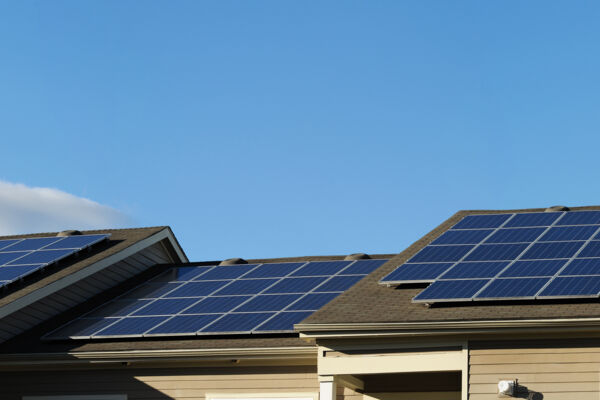Our Salisbury Solar Battery Project with Natural Solar
Everyone is talking about the renewable energy technology on our housing development in Salisbury.
In an Australian first initiative announced today, inhousing in partnership with Australia’s leading solar and battery installer Natural Solar , will be incorporating solar and battery storage into Specialist Disability Accommodation (SDA) designed for use by eligible participants of the National Disability Insurance Scheme (NDIS).
This first move into renewable energy for eligible participants of the NDIS will incorporate a property development in Salisbury, South Australia, followed by the potential for a wider roll-out in developments across the country. Solar and battery integration into each newly built property will reduce the electricity and household costs of Australian residents with significant disability living in SDA under the NDIS.
“The move to battery storage is about making an impact for those who truly need the support,” says Chris Williams, CEO & Founder of Natural Solar.
“Each home will be eligible for sonnenFlat, which will drastically cut the price of power for tenants. Currently the national annual average cost of power is $2,000 each year. Under this new electricity plan, residents will no longer have to pay for power, and will only outlay a monthly flat administration fee of $40, saving residents up to $1,520 per year.”
Natural Solar has also developed custom functionality for these tenants with each battery retaining a minimum of 20% charge at all times. In the event of a blackout or power outage, backup power will be activated, whereby the resident can prioritise household appliances to continue to run in order to avoid disruption.
“With the strong and rising household penetration of solar panels – and with the take up of batteries expected to increase as prices drop – it is clear that household solar systems have an increasing role in helping Australian households to manage energy costs,” said Paul Fletcher, Minister for Families and Social Services.
“Australians with disability should have access to the same energy choices in their homes – and that is why I am pleased to see this example of a specialist disability accommodation development using the latest home solar technology. I have no doubt we will see more of this in the future.
“If this delivers more choice and lower power prices for Australians with disability, it will bring significant benefits – benefits which can be expected to increase as the technology advances,” Minister Fletcher said.
In the initial development, each two bedroom, one bathroom single-storey accessible home will be fitted with a 10kWh Sonnen Battery Eco including backup power, and a 5.2 kWp solar system with Q-Cell panels. The solar panels will produce power, and the battery will store excess power produced, giving tenants power in how, and when they choose to use their stored power.
“Solar and batteries open up huge potential for SDA tenants under the NDIS, and we can see the opportunity ahead which is why we’ve elected to partner with Natural Solar on this development,” says Geoff Barber, COO from inhousing.
“This is our first foray into utilising renewable energy technology on our housing developments, and we are excited to see the benefits for our tenants and in future, extend battery and solar to a wider number of residents around the country.”
“The way these batteries will improve the quality of life for eligible participants of the NDIS is truly impressive. This is the first time Natural Solar has worked to build a solution of this calibre for a partnership and is amazing functionality for the occupants. This is two-fold in both the environment and the community,” Mr Williams said.
